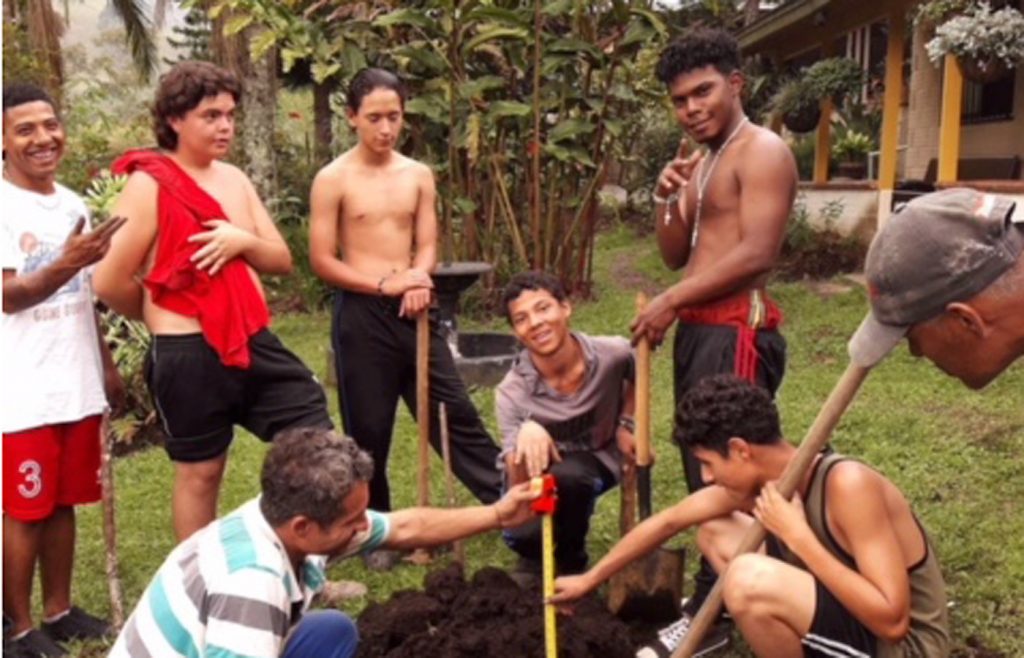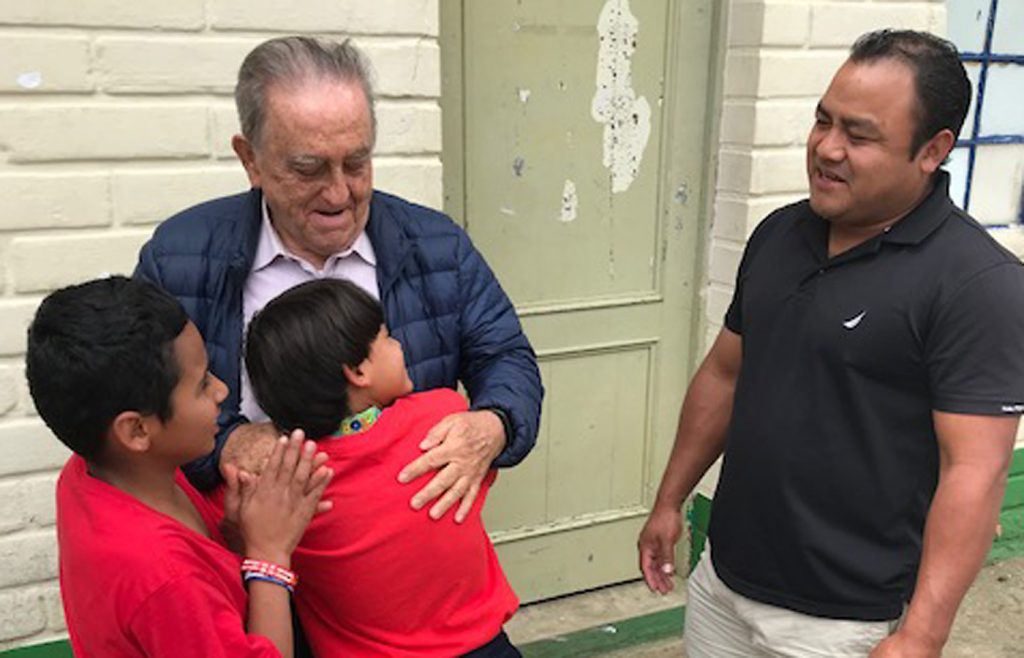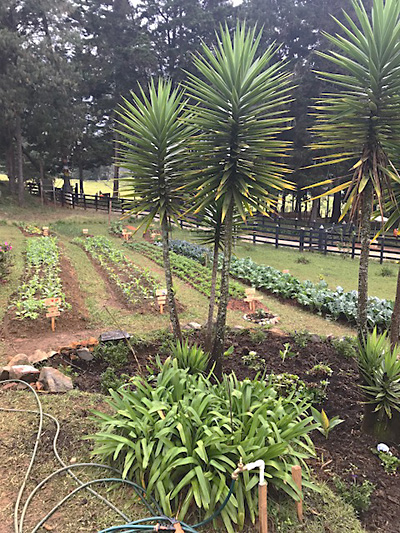
Feeding the hungry is a worthy ambition, but what if you could teach young people to grow food that would make them self-sufficient for a lifetime? That’s the goal of Fairfield-based nonprofit Charity Seeds, which has brought its special brand of gardening-based empowerment to Colombia. After great success in Africa for the past six years, Charity Seeds founder Kim Strubell joined forces with Father Gabriel Mejia and the Hogares Claret Foundation to bring healing gardens to thousands of homeless children in Colombia.

“Father Gabriel, his heart is true,” Strubell says. “He’s the Mother Teresa of Columbia, of South America. He’s a true hero in my eyes.” For over 40 years, Father Gabriel has been healing the street children of Colombia. Strubell saw firsthand the powerful approach that gives these neglected children another chance. Father Gabriel’s bottom-line therapy is love, and with the healing gardens established by Charity Seeds, the children will learn skills to help them flourish in society.
Teaming up with certified agroecology trainers and project directors Stephen Topenrud and Mario Lopez, Charity Seeds created the Colombia Healing Garden project to reach over 3,000 children living throughout Colombia.
“Our goal is to empower these children, heal their wounds, and bring hope and opportunity back to their lives,” says Strubell. Father Gabriel, whose humanitarian work was featured in the documentary Saving the Disposable Ones, has established 35 orphanages to help transform the lives of former street children. Over the years, his organization has helped over 100,000 children.
Father Gabriel, who has embraced a number of different therapies, recognized that Charity Seeds’ program would be the perfect fit. “We bring small-scale organic farms to people in need,” Strubell says. “We come in and we train. It’s all about education. It’s about knowledge. The most important thing is having that sustainable process that we pass on, and our trainers are all highly educated in either biointensive farming or agroecology.”

The students learn sustainable organic farming methods, with an emphasis on resourcefulness. That includes water management, seed saving, composting, and growing the soil—skills they can share with family, friends, and their community. To round out their education, they also study nutrition, cooking, and marketing.
“When they come out, not only will they be getting organic food, they will also be very empowered,” Strubell says. He returned to Iowa in March after spending four weeks in Colombia with his training partner, Moises. While they were there, it took two only weeks to build a greenhouse, pot 300 seedlings, and double-dig garden beds at the Horizon orphanage, which houses 85 young men. At a second orphanage, they’ve signed up another 26 enthusiastic boys to build a garden.
“The sincere effort being made by Colombians to heal and to create a better society is evident,” Strubell says. “It is apparent to me that healing the wounds of civil war, the effects of poverty, and other ills is paramount to the numerous people who work here. It’s given us the necessary boost in spirit to take on this challenging project.”
Strubell admits that working with former street children, most of whom are recovering drug addicts, is not always easy. They often have trouble focusing and can get easily frustrated. Strubell remembers one particularly hot Sunday when none of the young men were motivated to work, so the trainers decided everyone should just take the day off. The trainers took a gondola into town to visit the museums. When they returned, they were pleased to find the young men proudly showing off the garden to visiting family members and giving them vegetables to take home.
One of Strubell’s favorite stories is about David, a young man who’s been in Father Gabriel’s program for 10 months. Unable to sleep one morning, Strubell got up at five to walk in the garden. There he came across David, who picked up the soil in his hands and said, “This is what I love.” He said he’d never felt so much connection to the earth, and wanted to work for Charity Seeds and teach at the orphanages.
“Not everybody wants to be a farmer,” he says. “They don’t see it as a glamorous career.” At a girls’ orphanage, Strubell found that most of them wanted to be models and actresses. So he presented the possibilities of starting a business with organic produce, a business that could involve medicine or cosmetics. “They all got very excited that they could have their own business. So again, it’s about empowerment.”
He adds, “Colombia is in the middle of what I think are two stories right now. They’re emerging from the past and starting to write their own new story. They’re an incredible country, they’re very progressive, and small-scale organic farming is coming back to Colombia in a big way.”
The cost for establishing one garden is about $2,500. If you’d like to contribute, contact Kim Strubell at (515) 681-8907 or CharitySeeds.org. Charity Seeds also plans to expand into Costa Rica, Ecuador, El Salvador, and Panama.
